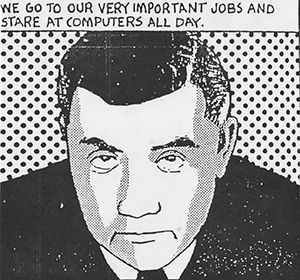Audio Presented by

CTO @ DistroKid, Principal @NimbleAutonomy, former: Spotify, Adobe, Microsoft, Anaconda, Onfido, Avvo.
Story's Credibility

About Author
CTO @ DistroKid, Principal @NimbleAutonomy, former: Spotify, Adobe, Microsoft, Anaconda, Onfido, Avvo.
Comments
TOPICS
Related Stories
24 Best JavaScript Blogs and Websites
@natashatsybliyenko
Dec 24, 2021
46 Stories To Learn About Blog
Feb 02, 2024
24 Best JavaScript Blogs and Websites
@natashatsybliyenko
Dec 24, 2021
46 Stories To Learn About Blog
Feb 02, 2024
